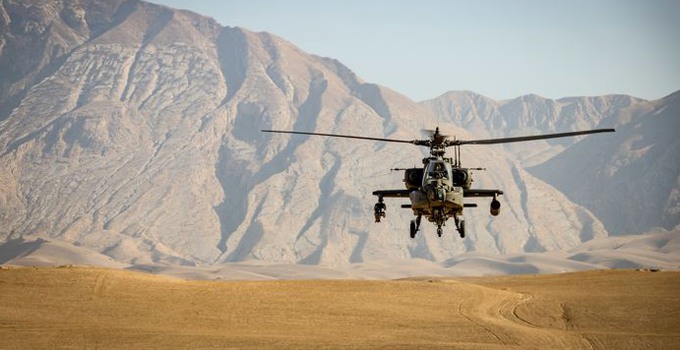
The article is based on archival studies that show how the United States channeled support via Zaire to the rebel group Unita, and via Pakistan to the Mujahideen in Afghanistan during the 1980s. Photo: André Klimke/Unsplash
"Our research fundamentally changes the way we understand proxy wars"
What happens when nation-states use other countries as intermediaries to distribute military support to rebel groups is far more complex than previous research has suggested.
- Our study sheds new light on how proxy wars work in practice and opens up a new field of research, says Niklas Karlén.
In early May 2023, the article "Dealers and Brokers in Civil Wars: Why States Delegate Rebel Support to Conduit Countries" was published in the scientific journal International Security.
The study looks at what happens when external state support to rebel groups is channelled through intermediaries in the form of other states. The findings show that the intermediary state often has its own agenda that the donor country needs to be aware of and manage for the aid to have the intended impact.
Intermediaries influence proxy wars
"Our findings show that states acting as intermediaries in proxy wars can significantly impact how military assistance is provided. It is largely a question of how well their strategic interests overlap with the sending state. The intermediary can which groups receive the support and how it is distributed. The intermediary may also have a direct impact on how the military operations are conducted", says Niklas Karlén, Senior Lecturer in War Studies at the Swedish Defence University, who wrote the article together with Vladimir Rauta, Senior Lecturer in Politics and International Relations at the University of Reading in the UK.
Two types of actors: Dealers and brokers
To describe the process, the researchers have developed a model that shows what happens at the different stages and how the donor country needs to consider the various actors' intent and strategic considerations.
"We show that intermediaries exist and explain why they are used, and how they often have better intelligence and proximity to the geographical territory where the aid is to be sent. They create a longer chain of plausible deniability for the supporting state. The further away, the easier it is to disclaim responsibility", he explains.
They describe two types of intermediaries: dealers and brokers.
"The broker has its own agenda, while the dealer has strategic interests that are in line with the donor country and, therefore, acts more as a direct agent."
The article is based on extensive archival research that shows how the US channelled aid via Zaire to the rebel group UNITA, and via Pakistan to the Mujahideen in Afghanistan in the 1980s.
A new view on proxy wars
Previous research described support to armed groups as a direct relationship between the state sending resources and the armed group receiving military support.
"We challenge this simplified view and show that the process is more complex", says Niklas Karlén.
Why is there no previous research on the role of intermediaries in proxy wars?
"Those working on these issues have known that intermediaries can influence the process, but this perspective is almost completely absent from current research. Our study opens up a new research area that raises new questions and hopefully has an impact on the models and theories we build in the future", says Niklas Karlén.
Strengthening the international legal system
Recognizing the role of intermediaries may have implications for other areas, such as international law and the possibility of prosecution in the context of war through proxies.
"As intermediaries become more visible, more actors can be held accountable. Furthermore, it can have an impact on which countries end up on sanctions lists of states supporting armed conflicts", he says.
Josefin Svensson
Publication
Niklas Karlén and Vladimir Rauta (2023): Dealers and Brokers in Civil Wars: Why States Delegate Rebel Support to Conduit Countries, International Security.
More about
War StudiesPage information
- Published:
- 2023-05-10
- Last updated:
- 2025-02-05
